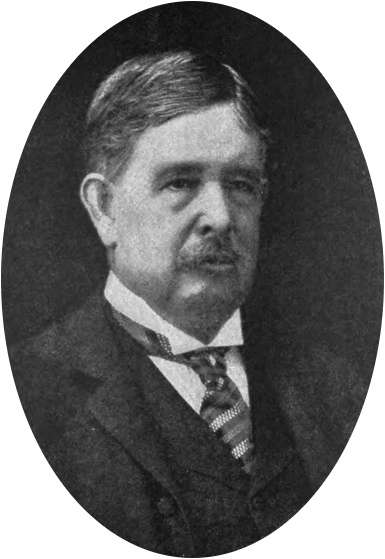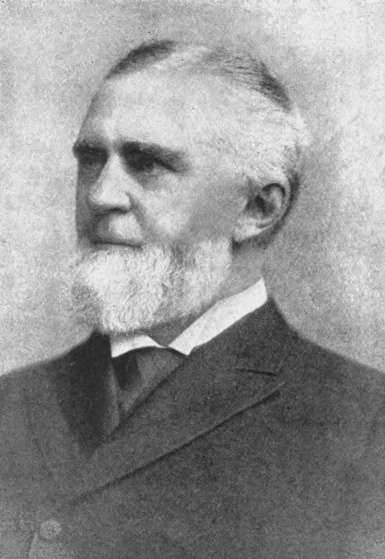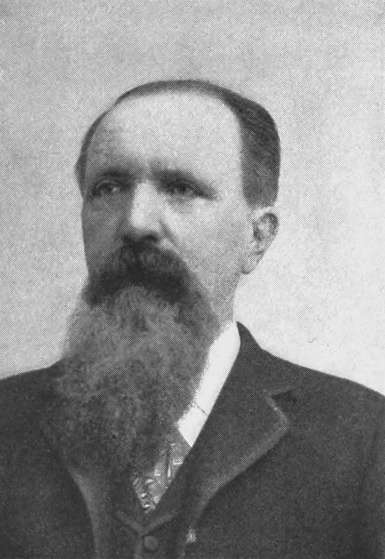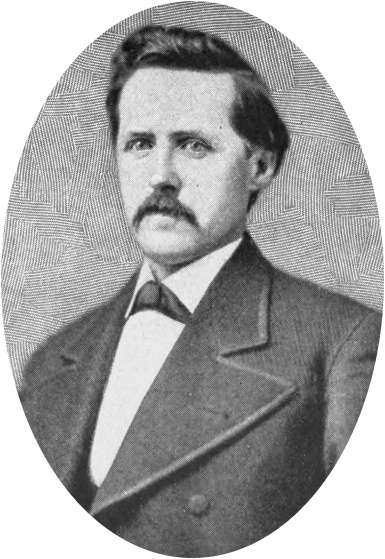

CENTRALISATION OF AUTHORITY — ROCKEFELLER AND EIGHT OTHER TRUSTEES MANAGING THINGS LIKE PARTNERS IN A BUSINESS NEWS — GATHERING ORGANIZATION FOR COLLECTING ALL INFORMATION OF VALUE TO THE TRUSTEES — ROCKEFELLER GETS PICKED MEN FOR EVERY POST AND CONTRIVES TO MAKE THEM COMPETE WITH EACH OTHER — PLANTS WISELY LOCATED — THE SMALLEST DETAILS IN EXPENSE LOOKED OUT FOR — QUICK ADAPTABILITY TO NEW CONDITIONS AS THEY ARISE — ECONOMY INTRODUCED BY THE MANUFACTURE OF SUPPLIES — A PROFIT PAID TO NOBODY — PROFITABLE EXTENSION OF PRODUCTS AND BY-PRODUCTS — A GENERAL CAPACITY FOR SEEING BIG THINGS AND ENOUGH DARING TO LAY HOLD OF THEM
WHILE there can be no doubt that the determining factor in the success of the Standard Oil Company in securing a practical monopoly of the oil industry has been the special privileges it has enjoyed since the beginning of its career, it is equally true that those privileges alone will not account for its success. Something besides illegal advantages has gone into the making of the Standard Oil Trust. Had it possessed only the qualities which the general public has always attributed to it, its overthrow would have come before this. But this huge bulk, blackened by commercial sin, has always been strong in all great business qualities in energy, in intelligence, in dauntlessness. It has always been rich in youth as well as greed, in brains as well as unscrupulousness. If it has played its great game with contemptuous indifference to fair play, and to nice legal points of view, it has played it with consummate ability, daring and address. The silent, patient, all-seeing man who has led it in its transportation raids has led it no less successfully in what may be called its legitimate work. Nobody has appreciated more fully than he those qualities which alone make for permanent stability and growth in commercial ventures. He has insisted on these qualities, and it is because of this insistence that the Standard Oil Trust has always been something besides a fine piece of brigandage, with the fate of brigandage before it, that it has been a thing with life and future.
If one attempts to analyse what may be called the legitimate greatness of Mr. Rockefeller's creation in distinction to its illegitimate greatness, he will find at the foundation the fact that it is as perfectly centralised as the Catholic church or the Napoleonic government. As was pointed out in a former chapter, the entire business was placed in 1882 in the hands of nine trustees, of whom Mr. Rockefeller was president. These trustees have always acted exactly as if they were nine partners in a business, and the only persons concerned in it. They met daily, giving their whole time to the management and development of the concern, as the partners in a dry-goods house would. Anything in the oil world might come under their ken, from a smoking wick in Oshkosh to the competition of Russian oil in China. Everything; but nothing came unless it was necessary; for below them, and sifting things for their eyes, were committees which dealt with the various departments of the business. There was a Crude Committee which considered the subject of crude oil, the world over; a Manufacturing Committee which studied the making of refined, the utilisation of waste, the development of new products; a Marketing Committee which considered the markets. Before each of these committees was laid daily all the information to be found on earth concerning its particular field; not only were there reports made to it of what was doing in its line in the Standard Oil Trust, but information came of everything connected with such work everywhere by everybody. These committees not only knew all about their own business, they knew all about everybody else's. The Manufacturing Committee knew just what each of the feeble independent refiners still existing was doing — what its resources and advantages were; the Transportation Committee knew what rates it got; the Marketing Committee knew its market. Thus the fullest information about new developments of crude, new openings for refined, new processes of manufacture, was always at the command of the nine trustees of the trust.




How did they get this information? As the press does — by a wide-spreading system of reporters. In 1882 the Standard had correspondents in every town in the oil fields, and to-day it has them not only there but in every capital of the globe. It is a common enough thing, indeed, in European capitals to run across high-class newspaper correspondents, consuls, or business men who add to their incomes by private reporting to the Standard Oil Company. The people in their employ naturally report all they learn. There are also outsiders who report what they pick up — "occasional contributions." There is more than one man in the Oil Regions who has made his livelihood for years by picking up information for the Standard. "Spies," they are called there. They may deserve the name sometimes, but the service may be perfectly legitimate.
These trustees then "know everything" about the oil business and they have used their information. Nobody ever used information more profitably. What was learned was applied, and affected the whole great structure, for by a marvellous genius in organisation Mr. Rockefeller had devised a machine with a head whose thinking was felt from the seat of power in New York City to the humblest pipe-line patrol on Oil Creek. This head controlled each one of the scattered plants with absolute precision. Take the refineries; they were individual plants, having a manager and a board of directors like any outside plant, but these plants were not free agents. According to J. J. Vandergrift's testimony in 1879, the Imperial Refinery, of which he was president, had no control of its oil after it was made. The Standard Oil Company of Cleveland took charge of it at Oil City, and arranged for transportation and for marketing. The managers of the Central Association, into which the allied refiners went in 1875 under Mr. Rockefeller's presidency, had "irrevocable authority to make all purchases of crude oil and sales of refined oil," as well as to "negotiate for all railroad and pipe-line freights and transportation expenses" for each of the refineries. Each plant, of course, was limited as to the amount of oil it could make. Thus, in 1876, when the Cleveland firm of Scofield, Shurmer and Teagle went into a running arrangement with Mr. Rockefeller on condition that he get for them the same rebates he enjoyed, it was agreed that the firm should manufacture only 85,000 barrels a year, though they had a capacity of 180,000 barrels.
One of Mr. Rockefeller's greatest achievements has been to bring men who had built up their own factories and managed them to suit themselves to work harmoniously under such limitations. As this history has shown, the first attempt to harness the refiners failed because they would not obey the rules. No doubt the chief reason why they finally consented to them was that only by so doing could they get transportation rates equally advantageous to those of the Standard Oil Company; but, having consented and finding it profitable, they were kept in line by an ingenious system of competition which must have done much to satisfy their need of individual effort and their pride in independent work. In the investigation of 1879, when the producers were trying to find out the real nature of the Standard alliance, they were much puzzled by the sworn testimony of certain Standard men that the factories they controlled were competing, and competing hard, with the Standard Oil Company of Cleveland. How could this be? Being bitter in heart and reckless in tongue, the oil men denounced the statements as perjury, but they were the literal truth. Each refinery in the alliance was required to make to Mr. Rockefeller each month a detailed statement of its operations. These statements were compared and the results made known. If the Acme at Titusville had refined cheaper that month than any other member of the alliance, the fact was made known. If this cheapness continued to show, the others were sent to study the Acme methods. Whenever an improvement showed, that improvement received credit, and the others were sent to find the secret. The keenest rivalry resulted — every factory was on its mettle.
This supervision took account of the least detail. There is a story often told in the Oil Regions to illustrate the minuteness of the supervision. In commenting as usual on the monthly "competitive statements," as they are called, Mr. Rockefeller called the attention of a certain refiner to a discrepancy in his reports. It referred to bungs — articles worth about as much in a refinery as pins are in a household. "Last month," the comment ran, "you reported on hand 1,119 bungs. Ten thousand were sent you at the beginning of this month. You have used 9,527 this month. You report 1,012 on hand. What has become of the other five hundred and eighty?" The writer has it on high authority that the current version of this story is not true, but it reflects very well the impression the Oil Regions have of the thoroughness of Mr. Rockefeller's supervision. The Oil Regions, which were notoriously extravagant in their business methods, resented this care and called it meanness, but the Oil Regions were wrong and Mr. Rockefeller was right. Take care of the bungs and the barrels will take care of themselves, is as good a policy in a refinery as the old saw it paraphrases is in financiering.
 |
Table of Contents |  |